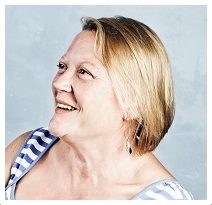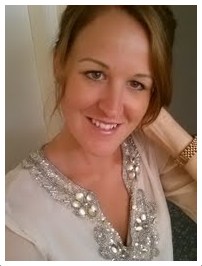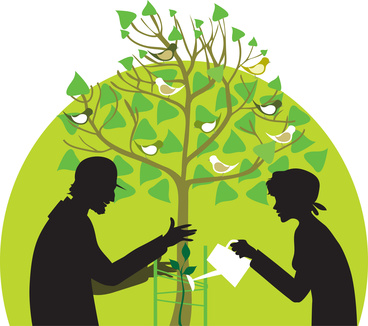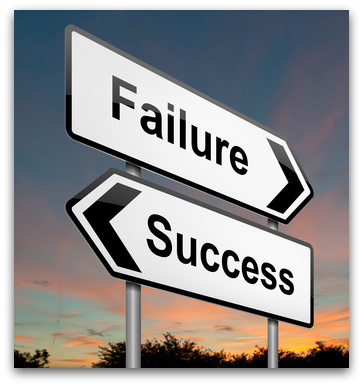Do You Take Your Business Personally?
In today’s guest post Kim Ravida addresses something that often gets in the way of coaches setting up and running their coaching business successfully.
Do You Take Your Business Personally?
By Kim Ravida
 Do you take your business personally? It’s an honest question. Most people say “It’s business, don’t take it personally.” But really, is that possible? I don’t think so. I think business is personal. Let’s face it, we are people. We are people who have lives, who love and care for others. As humans we are compassionate, thoughtful and we have feelings. So how can we take the feelings out of business? We can’t. We can, however, take the negativity out of it.
Do you take your business personally? It’s an honest question. Most people say “It’s business, don’t take it personally.” But really, is that possible? I don’t think so. I think business is personal. Let’s face it, we are people. We are people who have lives, who love and care for others. As humans we are compassionate, thoughtful and we have feelings. So how can we take the feelings out of business? We can’t. We can, however, take the negativity out of it.
What do I mean by take the negativity out of it? A lot of business owners take ‘no’ personally. Let’s take a look at a service-based business such as a coach, personal trainer, massage therapist or even a virtual assistant. In these businesses it is customary to make offers to prospects to come and benefit from our services. Yet, when we hear ‘no’, we can take it to mean that the prospect is saying ‘no’ to us personally, when in fact it is to the services we provide.
I call this type of behavior victim behavior. It means that when we are told ‘no’, we feel as if we have been rejected and then we go down the “I’m not good enough” path… which never leads to anything positive. That is what I mean when I say take the negativity out of it. YOU are good enough. When you go into victim-mode your energy dwindles, you have less drive to get things done, and you certainly don’t feel like making another offer because — gosh forbid — if that person says ‘no’ too, you just won’t be able to deal with it.
Yes, we do take our businesses personally. I have been there. I have felt down and out when someone has said ‘no’ to me. I have felt like maybe I’m not good at this and who would want to work with me anyway. It wasn’t until I realized that I was being a victim and I was taking ‘no’ personally. What they were saying ‘no’ to, in reality, is themselves. They are saying no to their growth, their potential and their happiness.
Here is a secret: usually when someone who is a good fit for you says no, it is because they aren’t feeling as if they are good enough. They may be feeling they won’t get the great results you are telling them they can have. They may feel it will be too hard (another negative and certainly an excuse) and they won’t be able to live up to your expectations… or even their own.
Just so you know; many people use money as an excuse and truly sometimes it is a valid reason. However, if they have looked you up and asked to talk to you, chances are it is time for them to move forward and they may be fearful and in the victim mentality.
Thus, here are several “rules” to remember so that you don’t take ‘no’ personally in your business:
Rule #1: You are good enough, right here and right now!
Rule #2: You have what it takes to be powerful in every situation.
Rule #3: You are not your business – if someone says no, it isn’t ‘no’ personally.
Rule #4: Keep a list of the things that you excel at, and if you do take a ‘no’ personally pull those out and read them.
Rule #5: Remember Rule #1
Everyone feels as if they might not live up to expectations and therefore they might not even try. Whenever you hear a ‘no’, try to keep in mind also that it is a no now but not forever. I know I’m not the only one who has had a potential client say no and then come to me at another point in time and said yes. Oftentimes people need to think on things and to process it. Yes, sometimes they need to feel the pain of the struggle a little longer before they can say yes to themselves… which, remember, is who they ultimately are saying yes to.
A wise mentor once said to me, “You take yourself everywhere, so why not take the best of yourself each time, leaving behind the possibility to take things personally because it never serves you well.”
About Kim Ravida
Kim Ravida is a lifestyle and business coach who helps women in business take powerful money actions and make solid, productive business decisions that positively impact their life and their business. Stop banging your head against the wall trying to figure out what to do first, wasting time and money. Kim Ravida Coaching can help you. Having been there herself, she has developed a specific system that sets the foundation for a business that brings in more clients, makes more money and saves tons of time so you truly can reach your goals and dreams. Find free resources at http://kimravida.com/resources/.
Article Source: http://EzineArticles.com/?expert=Kim_Ravida
http://EzineArticles.com/?Do-You-Take-Your-Business-Personally?&id=8565338





 Ben Morton is a Leadership Consultant at
Ben Morton is a Leadership Consultant at 


